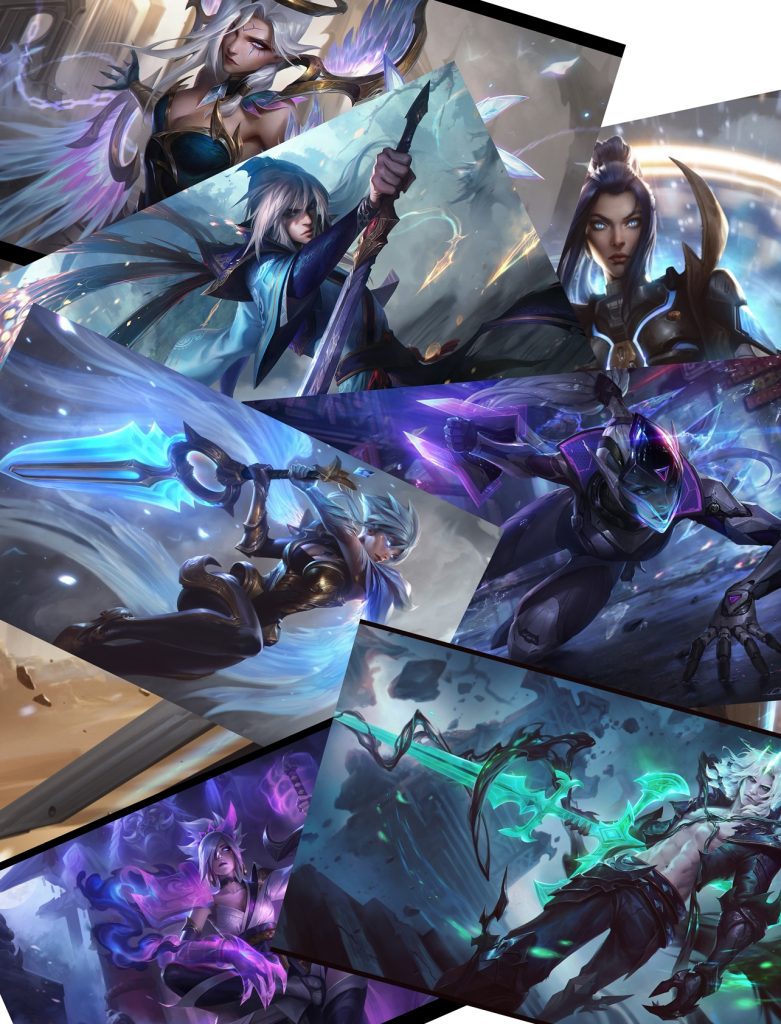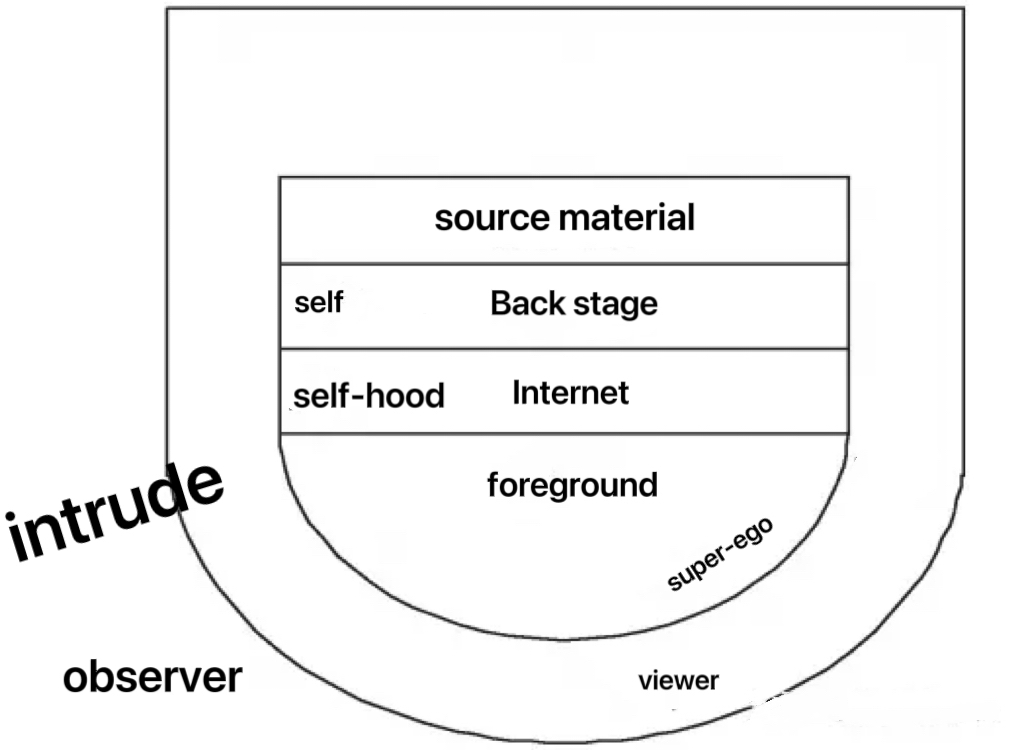вАШConstruction of Identity in a digital worldвАЩ
вАШIdentity tells us who we are and declares to others who we are.вАШ
-Burke Peter
With regard to the definition of identity, we generally agree that identity is the qualities, beliefs, personality traits or appearance that characterise a person or a group.
Identity emerges in our childhood when we begin to understand what the concept of self is little by little and remains consistent throughout the different stages of life. An identity is determined by social and cultural factors and how others perceive and recognise a person’s characteristics. Furthermore, the etymology of the word “identity” is originally derived from the Latin noun identitas, which emphasises an individual’s mental image of himself or herself and “sameness with others”. Identity encompasses various aspects, such as occupation, religion, ethnicity or race, gender, political identity вА¶вА¶

‘the real world
or the
digital world’
вАЬIdentity is the essential core of who we are as individuals,the conscious experience of the self insideвАЭ -Gershen Kaufman
Just like the avatars we use in chatting apps or the avatars we use when we play games, they are a reflection of our identity.It is also possible to create your own persona by posting your daily routine in social networks like a celebrity



As Goffman says, status, position, social standing is not a substance to be possessed and then displayed; it is a pattern of appropriate behaviour, coherent, embellished and well expressed. In the age of the Internet, the network provides everyone with a very convenient and fast “front stage”, for example, before we post photos in the circle of friends, we will often be carefully selected, carefully retouched, to show the good side of their lives. Just like technology is so developed and convenient now, we have so many social platforms, like Twitter, instergram, wechat вА¶вА¶ The audience in the “backstage” sees us as actors in the theatre.

conclusion
We are all actors in life, sometimes we perform and sometimes we come to our own backstage. Acting” in daily life is not hypocrisy, it is a necessary skill for us to survive in the society. Some people choose to wear a mask, some choose to face themselves sincerely, how to choose, we can decide for ourselves. We choose our different identities in the digital society, but in reality we are also real, and acceptance and honesty are also driving the development of digital life.
referenceпЉЪ
Buckingham, D., 2008. Introducing identity. MacArthur Foundation Digital Media and Learning Initiative.
Goffman, E. (1959) The presentation of self in everyday life. New York: Bantam Doubleday Dell Publishing Group.
Yuwei Li
w1900042

Hello, YuWei! I was particularly intrigued by how the blog post applies Goffman’s social interaction theory to our modern digital world. It’s interesting how it describes social media as a stage where we all carefully curate our public personas. This emphasises the disparity between the image we project to the world and our more private, authentic selves. However, there is room for further investigation, considering the psychological effects of maintaining this level of performance and how it may affect our real-life relationships and self-perception.
дљ†еНЪеЃҐзЪДе∞БйЭҐзЬЯзЪДеЊИеРЄеЉХжИСпЉБиґЕзЇІйЕЈпЉБеЬ®дљ†зЪДжЦЗзЂ†дЄ≠пЉМжИСжЄЕж•ЪеЬ∞зЬЛеИ∞пЉМеЬ∞дљНгАБеЬ∞дљНгАБз§ЊдЉЪеЬ∞дљНдЄНжШѓеПѓдї•жЛ•жЬЙзДґеРОе±Хз§ЇзЪДдЄЬи•њпЉЫеЃГжШѓдЄАзІНйАВељУзЪДи°МдЄЇж®°еЉПпЉМињЮиіѓгАБзЊОеМЦеТМи°®иЊЊеЊЧеЊИе•љгАВжѓПдЄ™дЇЇйГљеПѓдї•йАЙжЛ©иЃ©иЗ™еЈ±зЪДе§Ци°®жЫізЊОдЄљпЉМдљЖињЩзІНи°МдЄЇзїЩжИСдїђеЄ¶жЭ•е•ље§ДпЉМдљЖдєЯзїЩжИСдїђзЪДеЯЇжЬђзФЯжіїеЄ¶жЭ•дЇЖдЄАдЇЫйЧЃйҐШпЉИзЙєеИЂжШѓйВ£дЇЫеЬ®з§ЊдЉЪдЄ≠еЕЈжЬЙдЄАеЃЪеЬ∞дљНзЪДдЇЇпЉЙгАВдљ†зЪДжЦЗзЂ†йЭЮеЄЄжЄЕжЩ∞еТМзїДзїЗиЙѓе•љпЉМдљЖжИСиЃ§дЄЇжЬАе•љзЪДйГ®еИЖжШѓдљ†зЪДеЫЊзЙЗйАЙжЛ©еТМеЄГе±АпЉМеЫ†дЄЇжИСдЄНзЖЯзїГдљњзФ®ињЩдЄ™иљѓдїґпЉМжЙАдї•зЊОдЄљеТМзїДзїЗзЉЇдєПжЯРдЇЫдЉШеКњпЉМдљЖдљ†зЪДжЦЗзЂ†йЭЮеЄЄжЉВдЇЃпЉМиЃ©дЇЇдїђйШЕиѓїдЉЪеЊИйЂШеЕізЪДпЉБи∞Ґи∞Ґдљ†еИЖдЇЂпњљ
This blog post is very well written. Not only does it make the point clear from the start, but it also uses examples from everyday life to make it easier to understand.Such as photos of celebrities, the characters we play in games and the personality we want to show others on social media. Like avatar and name.
I really like the way you’ve laid out this blog! its very clear and consistent in your theory you’ve used and you refer back to it really well as well as through the imagery used. Great examples on how social media does not reflect a “normal” day-to-day life through personas used.
Hi, I think your article is great. Also I couldn’t agree more with what you said. It is true that who we are is only what we want others to think we are.